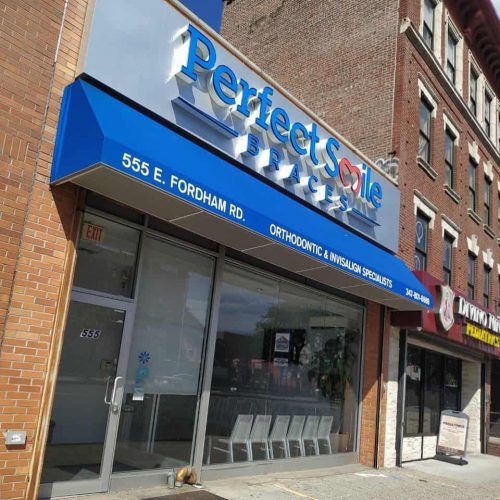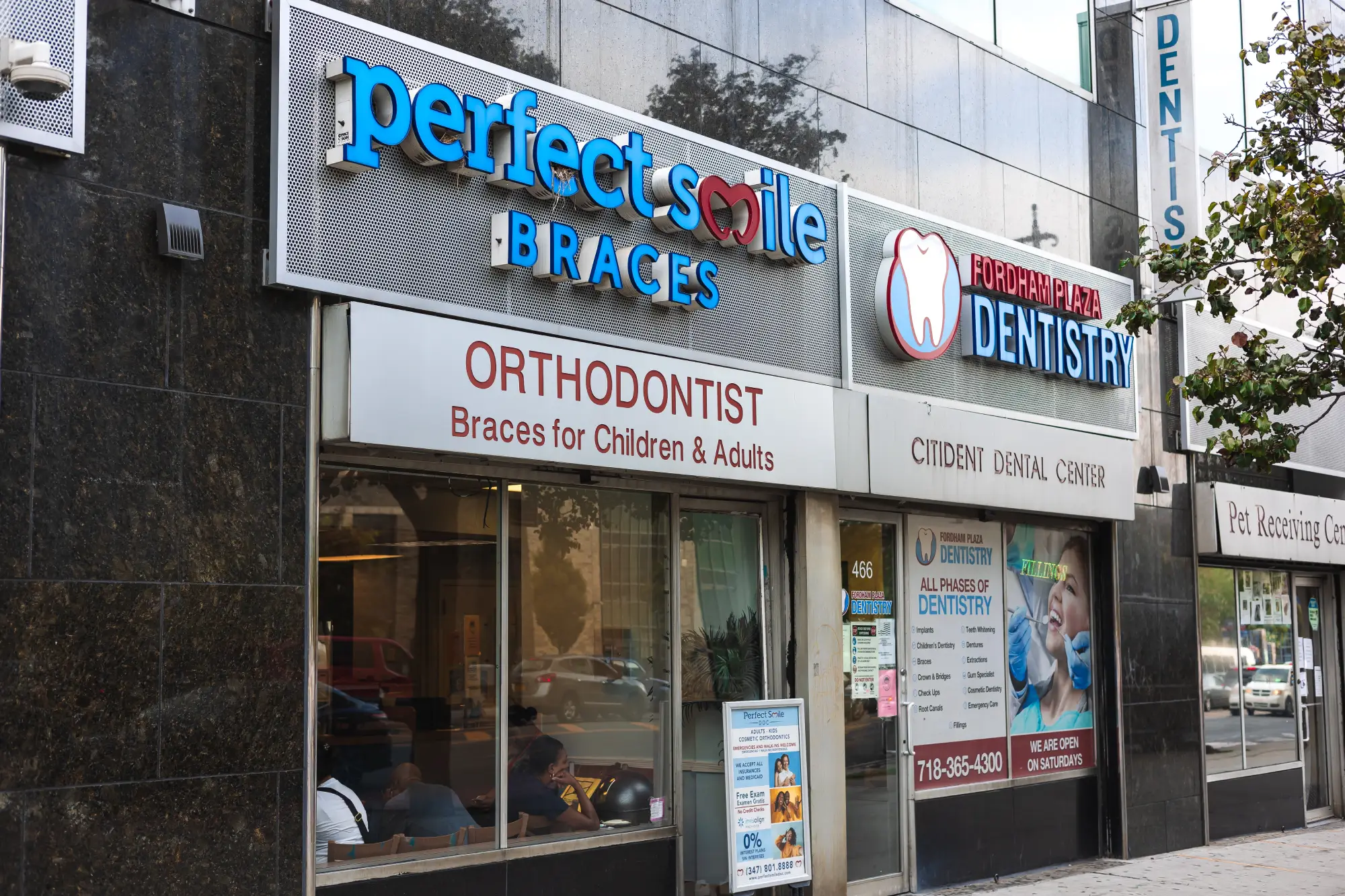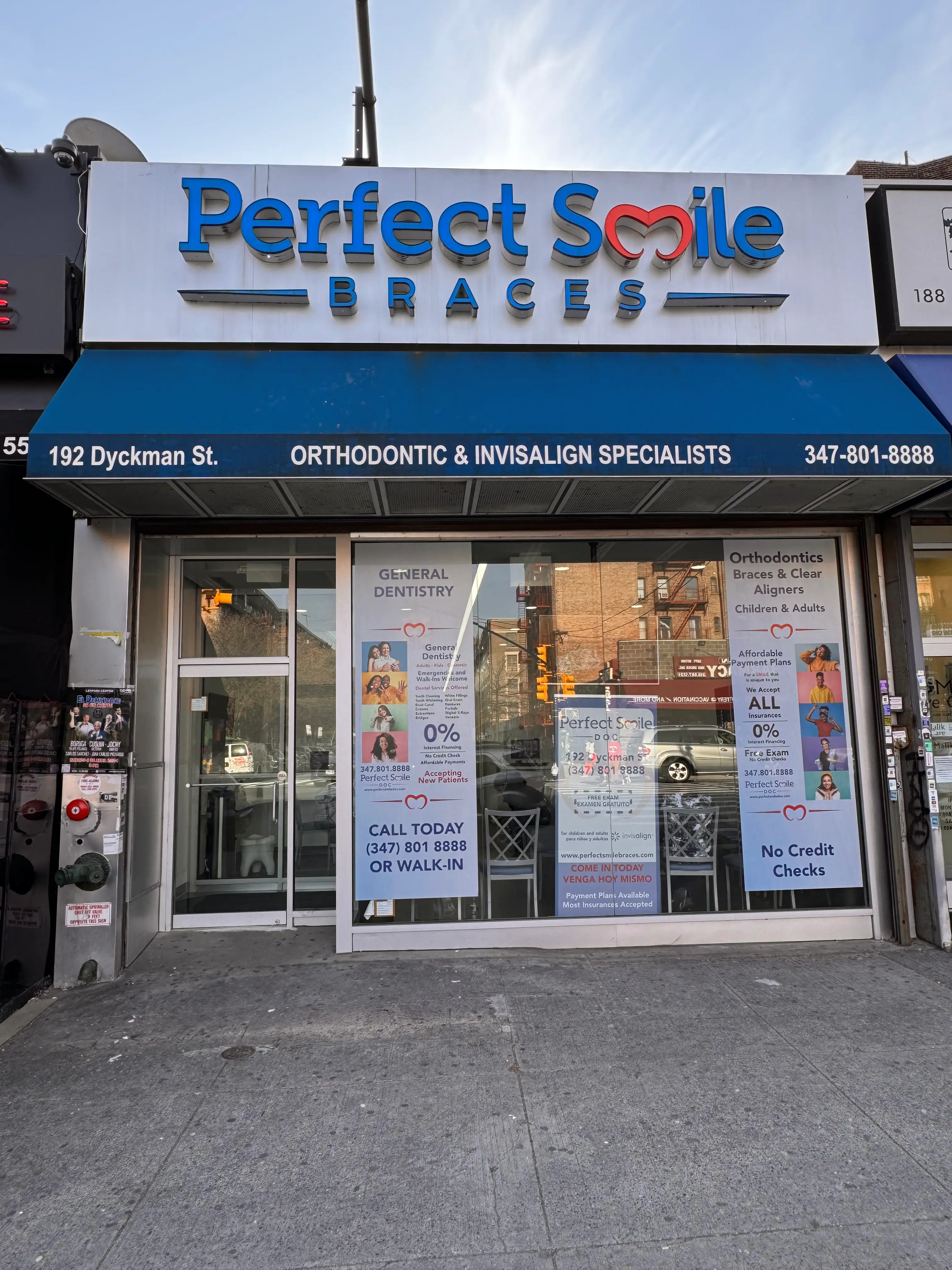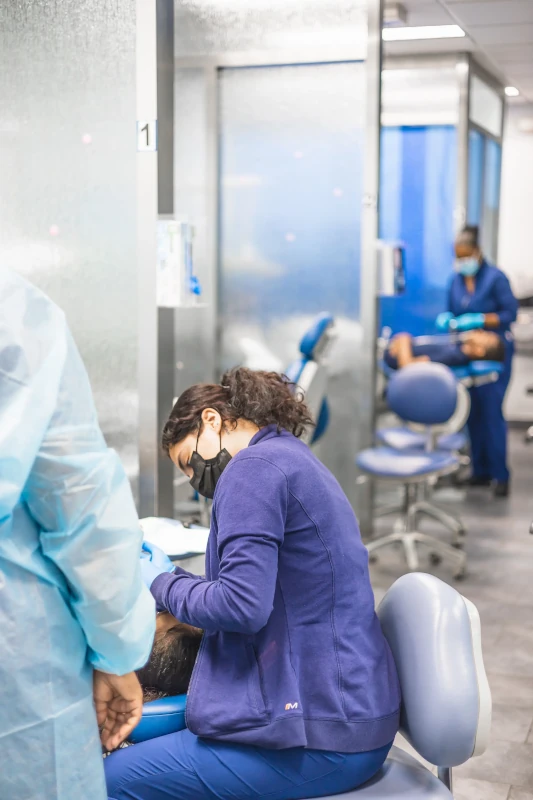Post
What to Do When Your Child Has Loose Baby Teeth?
As a parent, witnessing your child's first loose tooth is an exciting milestone in their development. It marks the beginning of their journey from baby teeth to permanent teeth, a big step in their growth. However, it can also bring about questions and concerns.
That’s why we aim to provide information on what to do when your child has loose baby teeth, ensuring that you and your child navigate this transition smoothly and confidently. From ideas to celebrate this occasion to knowing when to seek pediatric dentistry near you, we've got you covered.
.jpeg)
Understanding the Process
Baby teeth typically start to loosen around the age of six. This process, known as exfoliation, occurs because the permanent teeth push up from beneath the gums, dissolving the roots of the baby teeth. This natural process allows the baby teeth to fall out and make way for the permanent teeth.
What to Do When It Happens
When your child’s baby tooth becomes loose, it’s essential to handle the situation with care and knowledge. Here are detailed steps to ensure your child feels comfortable and the process goes smoothly:
Start with a Positive Attitude
Your child may feel anxious or scared about their loose tooth, especially if it’s their first one. Reassure them that losing baby teeth is a normal part of growing up and that it means they are getting bigger. Explain that everyone goes through this, and it’s a sign that their new, stronger teeth are coming in.
Keep It Clean
Maintaining good oral hygiene is key during this period to prevent infection and ensure overall dental health. Here’s how you can help:
- Brushing: Encourage your child to brush their teeth twice a day with a soft-bristled toothbrush. Be gentle around the loose tooth to avoid causing pain or accelerating the loosening process unnaturally.
- Rinsing: Use a saltwater rinse to help keep the area clean and reduce the risk of infection. Mix a teaspoon of salt in a glass of warm water and have your child rinse their mouth gently.
- Flossing: If the tooth is not too sensitive, flossing can help remove food particles and plaque from around the loose tooth and neighboring teeth.
Avoid Force
It’s important to let the loose tooth fall out naturally. Pulling or forcing the tooth out before it’s ready can cause unnecessary pain and increase the risk of infection. Here are some tips:
- Encourage Wiggling: Let your child gently wiggle the tooth with their tongue or clean fingers. This helps loosen the tooth gradually without causing trauma.
- Monitor the Tooth: Keep an eye on the tooth’s progress. If it’s hanging by a thread and causing discomfort, you can consider gently twisting and pulling it out. However, ensure it’s truly ready to come out to avoid any issues.
Managing Pain and Discomfort
Loose teeth can sometimes cause discomfort or pain, especially when eating. Here are some ways to manage these symptoms effectively:
- Cold Compress: Applying a cold compress to the outside of the cheek can help reduce swelling and numb the area. Wrap a few ice cubes in a cloth or use a cold gel pack and hold it against the cheek for 10-15 minutes at a time.
- Over-the-Counter Pain Relief: If your child is experiencing significant discomfort, you can give them age-appropriate pain relief medication such as acetaminophen or ibuprofen. Always follow the dosage instructions on the package and consult with your pediatrician if you have any concerns.
- Soft Foods: Offer soft foods that don’t require much chewing, such as yogurt, mashed potatoes, scrambled eggs, and smoothies. These foods are gentle on the gums and can help prevent additional discomfort while the tooth is loose.
Celebrating the Milestone
Losing baby teeth can be a fun and memorable experience. Here are some ways to celebrate this milestone:
- Tooth Fairy Tradition: Many families enjoy the tradition of the Tooth Fairy, where the child places the tooth under their pillow, and the Tooth Fairy leaves a small reward in exchange.
- Special Treat: Consider giving your child a special treat or outing to celebrate the occasion.
- Memory Book: Create a memory book where you can document each lost tooth with dates and pictures.
When to Seek Professional Help
While most loose baby teeth will fall out on their own without any issues, there are instances where you should consult a dentist to ensure your child's dental health is not at risk. Here are some specific situations that warrant professional attention:
Persistent Pain
If your child experiences significant pain that doesn’t subside, it’s essential to seek professional help. While some discomfort is normal when a tooth is loose, persistent or severe pain may indicate a problem that needs attention. This could be due to several reasons:
- Infection: Pain that doesn’t go away might be a sign of infection. An infected tooth or gum can cause considerable discomfort and needs to be treated promptly to prevent the infection from spreading.
- Impaction: Sometimes, the permanent tooth might be impacted, meaning it’s coming in at an angle or in a position that causes pain. This situation can also delay the natural falling out process of the baby tooth.
- Injury: If the tooth becomes loose due to an injury or trauma, there might be underlying damage that requires a dentist’s evaluation.
Infection Signs
Signs of infection around the loose tooth should prompt an immediate visit to the dentist. These signs include:
- Swelling: Swelling around the tooth or in the gums can indicate an infection or abscess.
- Redness: Red, inflamed gums around the loose tooth may be a sign of gingivitis or another form of gum disease.
- Pus: The presence of pus around the tooth is a clear sign of infection. This should be addressed quickly to avoid complications.
An infection not only causes pain and discomfort but can also spread to other parts of the mouth or even the body if left untreated. Prompt dental intervention can prevent further issues and ensure proper healing.
Prolonged Looseness
If the tooth remains loose for an extended period without falling out, it’s advisable to consult a dentist. Normally, a loose tooth will fall out within a few weeks to a couple of months. However, if it stays loose for a longer time, there might be underlying issues:
- Stubborn Baby Teeth: Sometimes, baby teeth can be stubborn and resist falling out even when the permanent teeth are ready to come in. This can crowd the incoming teeth and cause alignment issues.
- Misalignment: Prolonged looseness might indicate that the permanent tooth isn’t coming in correctly, which can lead to misalignment or crowding of teeth.
- Bone or Gum Issues: There could be issues with the bone or gums that are preventing the tooth from falling out naturally. A dentist can evaluate and address these problems.
Additional Situations to Consider
- Premature Loss: If a baby tooth falls out prematurely due to decay or injury, it’s important to see a dentist. They may recommend a space maintainer to keep the gap open for the permanent tooth to come in correctly.
- Delayed Eruption of Permanent Teeth: If the permanent tooth doesn’t erupt within six months after the baby tooth falls out, it’s wise to consult with a dentist. An X-ray might be necessary to determine if there are any underlying issues.
- Appearance of Permanent Tooth Before Baby Tooth Falls Out: Sometimes, a permanent tooth will start to erupt before the baby tooth has fallen out, leading to a situation known as “shark teeth.” While this can resolve on its own, it’s a good idea to get a dentist’s opinion to ensure proper alignment and health of the teeth.
.jpeg)
Discover Quality Pediatric Dentistry Near You
At Perfect Smile Doc, we understand that every moment in your child's dental health is important. Our pediatric dentists are here to support you and your child through every step, ensuring a positive and healthy experience. If you have any concerns about your child’s loose teeth or overall dental health, don't hesitate to reach out to us.
Not Sure if You’re Covered?
Your Perfect Smile is within reach, and we're here to help you every step of the way. We can streamline the process for you by contacting your insurance company and acquiring a detailed breakdown of your specific plan information. Let us take the guesswork out of navigating insurance and payment options.
Learn More

555 E FORDHAM RD BRONX, NY 10458
MONDAY TO FRIDAY 9:00 AM – 6:00 PM
SATURDAY 8:00 AM – 2:30 PM
B
D
4
Bx12
Bx12+
Bx9
Bx15
Bx17
Bx22
Bx41
Bx34 B Bx1
Bx2
BxM4

468 E FORDHAM RD BRONX, NY 10458
MONDAY TO FRIDAY 9:00 AM – 6:00 PM
SATURDAY 8:00 AM – 2:30 PM
B
D
4
Bx12
Bx12+
Bx9
Bx15
Bx17
Bx22
Bx41
Bx34
Bx1
Bx2
BxM4

192 Dyckman St New York, NY 10040
MONDAY TO FRIDAY 9:00 AM – 6:00 PM
SATURDAY 8:00 AM – 2:30 PM
A
1
M100
Bx7
BxM1
Bx12
Bx12-SBS
Bx20
M3




.jpg)